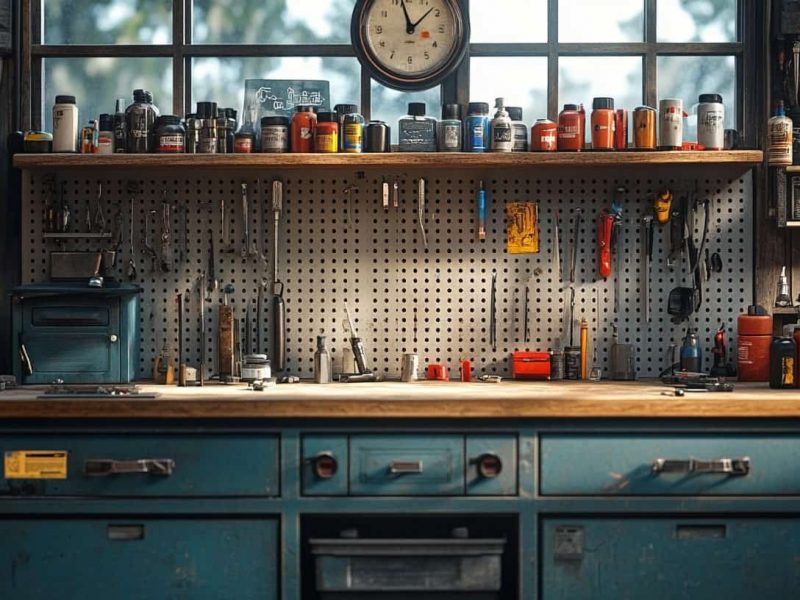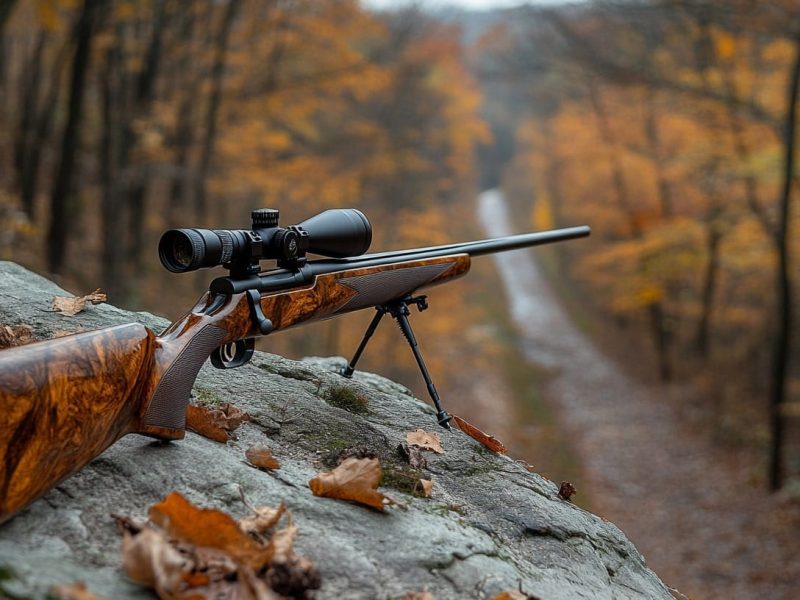Introduction
Owning a firearm is both a responsibility and a privilege. For gun enthusiasts, hunters, and firearm owners, maintaining the longevity and performance of their pieces is paramount. One critical, yet often overlooked, aspect of firearm care is barrel maintenance. This blog post will guide you through the essentials of barrel maintenance, ensuring your firearm remains reliable, accurate, and safe for years to come.
The Basics of Barrel Maintenance
Barrel maintenance refers to the regular cleaning and care required to keep your firearm’s barrel in optimal condition. Over time, residues from gunpowder, metal fouling, and moisture can accumulate inside the barrel, leading to corrosion, reduced accuracy, and potential safety hazards. Regular maintenance helps prevent these issues, ensuring that your firearm performs flawlessly every time you use it.
Why is it crucial?
Simply put, a well-maintained barrel ensures better accuracy, reliability, and safety. Whether you’re a hunter relying on precision, a competitive shooter aiming for consistency, or a firearm owner keen on safety, understanding and practicing barrel maintenance is non-negotiable.
Signs of Wear
Knowing when your firearm barrel needs attention is key to preventing long-term damage. Here are some signs to watch out for:
- Visible Corrosion:
Rust or discoloration inside the barrel is a clear indication that it’s overdue for cleaning. Moisture can cause rust, which in turn affects the barrel’s integrity and performance.
- Decreased Accuracy:
If you notice that your shots are becoming less accurate, it could be due to buildup inside the barrel affecting the bullet’s path. Regular cleaning can help maintain precision.
- Difficulty Loading or Extracting Rounds:
A dirty barrel can make it difficult to load or extract rounds, leading to malfunctions. This is not only frustrating but also potentially dangerous.
Step-by-Step Maintenance Guide
Proper barrel maintenance involves several steps. Here’s a detailed guide to help you through the process:
- Safety First:
Always ensure your firearm is unloaded before starting any maintenance. Double-check the chamber and magazine.
- Disassemble Your Firearm:
Follow the manufacturer’s instructions to disassemble your firearm. This will typically involve removing the bolt or slide to access the barrel.
- Cleaning the Barrel:
- Use a Bore Brush:
Attach a bore brush to a cleaning rod and run it through the barrel several times to loosen any residues.
- Apply Solvent:
Apply a gun cleaning solvent to a patch and run it through the barrel to dissolve fouling. Allow it to sit for a few minutes.
- Scrub with a Nylon Brush:
Use a nylon brush to scrub the barrel, ensuring all residues are removed.
- Dry Patches:
Run dry patches through the barrel until they come out clean. This ensures all solvent and fouling are removed.
- Inspect the Barrel:
Use a bore light or a bright flashlight to inspect the barrel for any remaining residues or signs of wear. Ensure it is clean and shiny.
- Lubricate:
Apply a light coat of gun oil inside the barrel to prevent rust and corrosion.
- Reassemble Your Firearm:
Follow the manufacturer’s instructions to reassemble your firearm, ensuring all parts are properly aligned and secure.
- Store Properly:
Store your firearm in a cool, dry place. Use a gun sock or case to protect it from dust and moisture.
Tools of the Trade
Having the right tools is crucial for effective barrel maintenance. Here’s a list of essential cleaning tools and products:
- Cleaning Rods:
Sturdy, flexible cleaning rods are necessary to reach the full length of the barrel.
- Bore Brushes:
These come in various materials like bronze or nylon and are essential for scrubbing fouling out of the barrel.
- Patches and Jags:
These are used to apply solvent and oil and to wipe away residues.
- Solvents and Lubricants:
Quality gun cleaning solvents break down fouling, while lubricants protect against rust and ensure smooth operation.
- Bore Light:
A bore light helps you inspect the inside of the barrel to ensure it’s clean.
Common Mistakes to Avoid
Avoiding common pitfalls can save you from damaging your firearm barrel:
- Using Excessive Force:
Applying too much force while cleaning can scratch or damage the barrel. Always use gentle, consistent pressure.
- Neglecting Regular Maintenance:
Infrequent cleaning leads to buildup and corrosion. Stick to a regular maintenance schedule to keep your firearm in top shape.
- Using Improper Tools:
Using the wrong-sized brushes or rods can damage the barrel. Always use tools specifically designed for your firearm.
Q&A Section
Q1. How often should I clean my firearm barrel?
It depends on usage, but a good rule of thumb is to clean the barrel after every shooting session. For firearms stored for long periods, clean and oil them at least once a year to prevent rust.
Q2. Can I use household cleaning products for barrel maintenance?
It’s not recommended. Household cleaners can be too harsh and may damage your firearm. Always use products specifically designed for firearms.
Q3. Do I need to clean a new firearm before using it?
Yes, cleaning a new firearm removes any manufacturing residues and ensures it’s ready for use.
Q4. Is it necessary to lubricate the barrel after cleaning?
Yes, applying a light coat of gun oil prevents rust and ensures smooth operation.
Conclusion
Regular barrel maintenance is essential for ensuring the longevity and performance of your firearm. By following these tips and avoiding common mistakes, you can keep your firearm in excellent condition, ready for any occasion.
For more expert advice and personalized tips on firearm care, feel free to reach out and join our community of gun enthusiasts. Share your experiences, ask questions, and learn from others who share your passion.
Happy shooting and stay safe!


